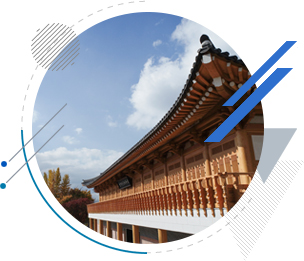JEONBUK NATIONAL UNIVERSITY
Department of Science Education
Chemistry Education Major
The Chemistry Education Major was established in 1972, alongside the founding of the College of Education at Jeonbuk National University, as one of the three specialized tracks (Physics, Chemistry, and Biology) within the Department of Science Education. Its founding purpose was to cultivate qualified secondary school science teachers—particularly chemistry teachers—equipped with a strong foundation in scientific knowledge, a deep understanding of chemical principles, and the ability to apply them to advance science and technology. Guided by the educational philosophy of Hongik Ingan (“to broadly benefit humanity”), the program aims to nurture professionals who contribute meaningfully to the nation and society through education.
Initially, the program admitted only 10 students per year. On October 2, 1980, the Chemistry track was reorganized into the independent Department of Chemistry Education. During the early 1980s, the number of enrolled students reached approximately 160. However, following the introduction of the national teacher certification exam and related adjustments, the current enrollment capacity is around 50 students. At present, the department is led by five faculty members specializing in Physical Chemistry, Organic Chemistry, Analytical Chemistry, Inorganic Chemistry, and Chemistry Education. Students engage in advanced theoretical and practical studies across these disciplines, supported by facilities such as large-scale laboratories, lecture halls, seminar rooms, and a departmental library—all dedicated to fostering excellence in chemistry teacher training.
Graduates of the program earn a Bachelor of Science degree and are qualified to obtain a Level 2 Secondary School Teacher Certificate in Chemistry. Alumni actively serve as chemistry or general science teachers in secondary schools, while others pursue graduate studies to advance their academic careers. Many graduates also contribute to diverse fields across society, including research institutes and higher education, continuing their professional growth as researchers, educators, and scholars.

